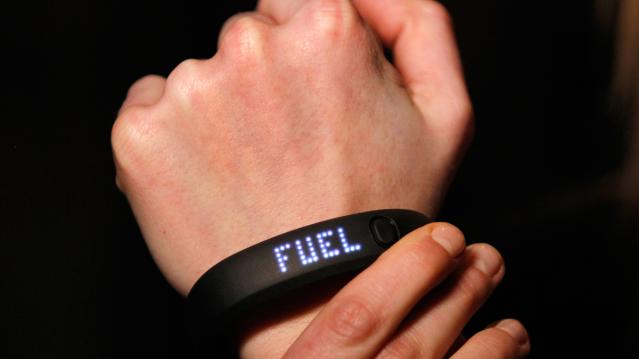In a Black Eye for Wearable Tech, Nike Giving Refunds for FuelBand

If you thought that the calorie count and steps tracked by your Nike FuelBand were inaccurate, you may have been right.
Nike and Apple have agreed to settle a class action lawsuit claiming that the companies made misleading statements regarding the product’s ability to accurately track calories and steps, according to a website maintained by settlement administrator Gilardi & Co.
The companies have denied the allegations and claim they broke no laws, but they have agreed to a settlement in which Nike will give consumers who join the class action suit by January $15 or a $25 Nike gift card. The total cost of the refunds could reach more than $2 million.
Related: Why No One is Actually Buying Wearable Tech
Anyone who purchased a FuelBand from January 19, 2012 through June 17, 2015 is eligible for the refund.
Last year, Nike began shifting its focus away from producing FuelBands, choosing instead to focus on apps, including one for the Apple watch, that support fitness tracking. The company has said it has more than 60 million digital fitness software users.
The FuelBand was an early entrant into what has become a crowded field or wearable fitness trackers, despite questions about their accuracy. However smart watches, which offer built-in fitness trackers along with other apps, may soon eclipse the demand for that standalone products.
A report released last year by tech analysts Juniper Research projected that revenue from wearable tech, would increase from $4.5 billion in 2014 to more than $53 billion in 2019.
Increasing Number of Americans Delay Medical Care Due to Cost: Gallup

From Gallup: “A record 25% of Americans say they or a family member put off treatment for a serious medical condition in the past year because of the cost, up from 19% a year ago and the highest in Gallup's trend. Another 8% said they or a family member put off treatment for a less serious condition, bringing the total percentage of households delaying care due to costs to 33%, tying the high from 2014.”
Number of the Day: $213 Million

That’s how much the private debt collection program at the IRS collected in the 2019 fiscal year. In the black for the second year in a row, the program cleared nearly $148 million after commissions and administrative costs.
The controversial program, which empowers private firms to go after delinquent taxpayers, began in 2004 and ran for five years before the IRS ended it following a review. It was restarted in 2015 and ran at a loss for the next two years.
Senate Finance Chairman Chuck Grassley (R-IA), who played a central role in establishing the program, said Monday that the net proceeds are currently being used to hire 200 special compliance personnel at the IRS.
US Deficit Up 12% to $342 Billion for First Two Months of Fiscal 2020: CBO

The federal budget deficit for October and November was $342 billion, up $36 billion or 12% from the same period last year, the Congressional Budget Office estimated on Monday. Revenues were up 3% while outlays rose by 6%, CBO said.
Hospitals Sue to Protect Secret Prices

As expected, groups representing hospitals sued the Trump administration Wednesday to stop a new regulation would require them to make public the prices for services they negotiate with insurers. Claiming the rule “is unlawful, several times over,” the industry groups, which include the American Hospital Association, say the rule violates their First Amendment rights, among other issues.
"The burden of compliance with the rule is enormous, and way out of line with any projected benefits associated with the rule," the suit says. In response, a spokesperson for the Department of Health and Human Services said that hospitals “should be ashamed that they aren’t willing to provide American patients the cost of a service before they purchase it.”
See the lawsuit here, or read more at The New York Times.
A Decline in Medicaid and CHIP Enrollment

Between December 2017 and July 2019, enrollment in Medicaid and the Children's Health Insurance Program (CHIP) fell by 1.9 million, or 2.6%. The Kaiser Family Foundation provided an analysis of that drop Monday, saying that while some of it was likely caused by enrollees finding jobs that offer private insurance, a significant portion is related to enrollees losing health insurance of any kind. “Experiences in some states suggest that some eligible people may be losing coverage due to barriers maintaining coverage associated with renewal processes and periodic eligibility checks,” Kaiser said.


